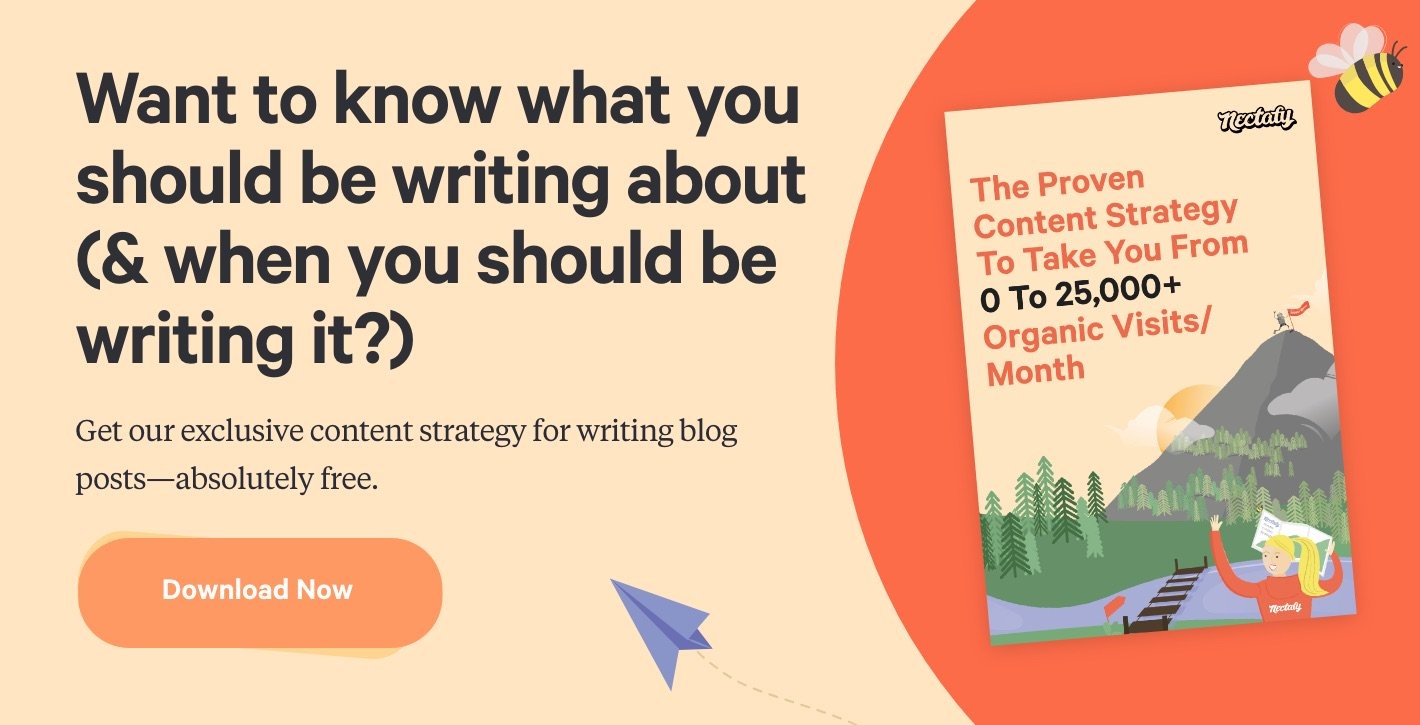The Do’s & Don’ts Of Subject Matter Expert Interviews


by Megan Marling • 3 minute read • October 6, 2015

A while back, a client emailed me about a particularly difficult article topic. Her email started off something like this:
“Megan, let me find an SME I can get you in touch with for this article…”
*Crickets*
Um… find a what?
A quick Google search told me “SME” could be an acronym for Sony Music Entertainment, Society of Manufacturing Engineers, or small and medium-sized enterprises. Common sense told me to keep looking (though, a meeting with Sony would’ve been pretty cool), and I finally discovered SME also stands for “subject matter expert.” Now, that made a lot more sense!
Subject matter experts (SMEs) can offer key insights into their field and make your job as a writer a whole lot easier. From an inbound marketing perspective, these individuals are vital in helping us craft really great copy (without BSing it). One of the best ways to gather some of the great insights they can offer is through an interview.
My fellow content creators and I have gone through a lot of “SME” interviews and have learned quite a bit about the do’s and the don’ts. I’ve compiled that knowledge here so you can learn from our successes (and mistakes)!
Note: Because we’re a remote company and have clients located all over the U.S. (even some in other countries, for that matter), we conduct our interviews virtually. Our tips may assume that you’re conducting an interview in an online meeting room or over the phone—but these suggestions can also apply to in-person interviews.
General Interview Tips
1. Do set a time limit.
This will vary dramatically based on your client or subject matter, but it’s really important. I typically schedule a regular-length blog post interview for 15 minutes, a long-form blog post interview for 30 minutes, and two or three 30-minute interviews for offers. Gathering too little information can force you to set up another interview before you can finish your article, but gathering too much information can force you to waste time parsing out extraneous details to get to the good stuff.
2. Don’t think you have to completely understand the topic to talk to the SME.
Sure, you need to have a general understanding of what you’re talking about (something we’ll discuss more), but there’s a reason you’re interviewing a subject matter expert: so you don’t have to be one!
3. Don’t be intimidated.
SMEs are like bloodhounds… they can smell your fear! Just kidding! But really, you shouldn’t feel awkward. Your SME does not expect you to know everything they’re talking about—they just expect you to be cordial and thorough (which you can do!).
4. Do meet with only one SME at a time.
I recently put myself in a situation where I bit off more SMEs than I could chew. I scheduled an interview with five people and didn’t adequately prepare them for the topics we were going to cover. Luckily, everyone was very understanding—but we got absolutely nowhere with the meeting. (And that might even be an understatement.)
5. Don’t assume that all SMEs will be the same.
You will likely encounter some SMEs that are excellent at giving you relevant information and insight and others that are pretty bad at it. Truthfully, the only way to get better at pushing interviews in the right direction with any kind of SME is by, well, performing a lot of interviews! So keep on keepin’ on!
Pre-Interview
6. Do prepare your SME before you meet with them.
This can be as simple or as complex as you need it to be. If I’m interviewing an SME I’ve never spoken with before, I’ll send them an email with the topic we’re discussing and a few high-level questions I’ll be asking them. This allows them to think through their answers beforehand and give me details during the interview they may not have been able to if I were to put them on the spot. If I’m speaking to someone I’ve interviewed quite a few times before, I’ll typically just send the headline or topic we’re discussing.
7. Don’t forget to do your due diligence.
Your SME isn’t the only one who needs to show up prepared! If you’ve done your due diligence, you’ll be more confident going into the interview and will get more out of your SME. The amount of time this will take varies depending on your situation and your interviewee. I usually dedicate 15-20 minutes before my content interviews to prepare a Google Doc for note-taking and gather a general understanding of the topic I’m interviewing on.
During The Interview
8. Do record the interview.
This isn’t just a suggestion—it’s a demand. You absolutely must record your interview, and I’ll tell you why.
First, you can actually concentrate on what the SME is telling you rather than focusing on furiously typing everything they say.
Second, you’re likely going to miss a few things they say even if you can type really fast. I can type about 85-90 words per minute, and I still can’t get down everything my SME tells me.
Last but not least, your SME will easily be able to tell if you’re engaged in the conversation—and if you’re trying to write out what he or she is saying word for word, you’re not engaged. We love Zoom for online video conferencing, and they offer a really simple “record” feature that will automatically create an audio and video recording once your interview is complete. If you’ll be using a phone (and you have a Mac), I suggest you download an app like eXtra Voice Recorder. You can put your phone on speaker, and your computer will take care of the recording.
Note: For legal issues, make sure you disclose that you are recording the call and why before you do so.
9. Do take notes.
Just because you’re recording your interview doesn’t mean you should zone out. Jotting down a very simple, brief outline of notes will help keep your interview on the right track. Make sure you look for emerging patterns from what your SME is telling you—particularly if you need to develop a specific angle. Your outline allows you to ask more intelligent questions and helps you determine whether you need additional information from your SME right away.
10. Do be prepared to answer tough questions.
It’s not uncommon to hear an SME ask, “Why are we writing about this topic? Can you give me some additional details about what you want to see in this article?” If you’re not prepared to answer their questions, you’re not going to be able to glean as much relevant information. So, refer back to tip #1!
11. Do prepare yourself for potential interviewing issues.
Hear me out: we work with some incredible folks who, 99% of the time, are extremely happy and easy to talk to. But everyone has bad days. You may, by no fault of your own, catch your SME at a really bad time, and he or she may be less than interested in the interview. My advice? Keep it short and relevant, cut the meeting short, and schedule a brief follow-up for another time.
12. Don’t be afraid to ask for clarification.
Try as you might, you’re likely never going to know as much about the SME’s industry as they do. So if they ask if something makes sense, don’t meagerly nod your head. If they are talking too fast, slow the interview down! You can control this by simply saying, “This is a topic I’m pretty unfamiliar with. Could you speak a little slower so I can try to digest your responses and ask better questions?”
13. Do ask your SME for “the one big thing.”
This has, by far, lead to some of the greatest information from those I’ve interviewed. Right before I wrap up the interview, I ask, “We’ve determined who will be reading this article—what’s the one big thing they should walk away understanding?” Nine times out of 10, the SME will have to think this through, and their authentic answer will give you some really key insights into your company’s (or client’s) target audience.
14. Do take control of the interview.
Remember: Your SME is an expert in their field, but you’re an expert in yours! And as such, you need to be able to lead the meeting in the direction you’d like it to go. This is the only way to ensure you actually get your questions answered and avoid your SME veering off on a tangent that has nothing to do with the subject at hand. The SME is boarding your ship—don’t let them take the helm.
15. Don’t settle for one-word answers.
If all you needed was “yes” or “no” questions answered, you would’ve simply sent an email. Interviews are precious—they give you the direct attention of your SME. To combat one-word answers, ask open-ended questions. If the SME stops short, ask for further details or clarification. Push for more content!
One final note: Do try to take this information into account, but don’t worry if your interview doesn’t go perfectly! Not every interview is going to go off without a hitch, and not every SME will allow for a painless interview process.
Do you have any do’s or don’ts to add to this list? Share your tips below in the comment section.
